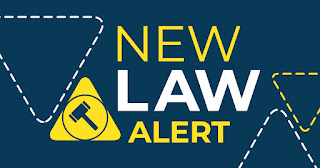Starting on July 1, 2022, Bill (S2132B) will add increased fair housing and discrimination training for Real Estate Brokers and Salespersons.
Summary:
- Requires course content to include:
- Legacy of segregation, unequal treatment, and historic lack of access to opportunity in housing;
- Unequal access to amenities and resources on the basis of race, disability and other protected characteristics;
- Federal, state, and local fair housing laws;
- Anti-Bias training.
- Requires 152 hours of training to obtain a Real Estate Broker license
- Requires 77 hours of training to become a licensed Real Estate Salesperson
- Requires approval of faculty to sign a document, under oath, approved by and submitted to the Department of State, attesting to compliance with all applicable statutory and regulatory requirements pertaining to the instruction of the established curriculum. There will be penalties for faculty that fail to meet their obligations including suspension and revocation of their instructor certificate.

















